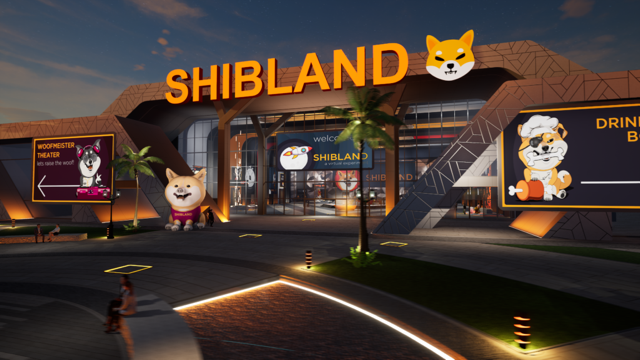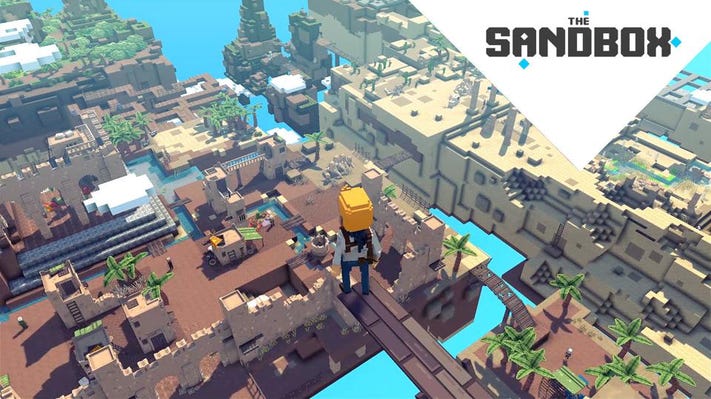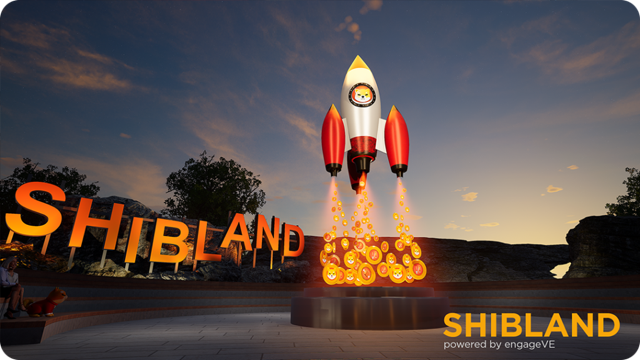
Metaverse NFTs and the Virtual Events Industry
Metaverse NFTs are coming to the virtual events industry.
Both NFTs and the metaverse are becoming increasingly popular and will likely impact every industry to some extent in the coming years. But what exactly are NFTs and the metaverse? And what does their recent emergence mean for the events industry?
What is a Metaverse?
The metaverse is a persistent online 3D-virtual world. Wikipedia defines the term as “a hypothesized iteration of the internet, supporting persistent online 3-D virtual environments through conventional personal computing, as well as virtual and augmented reality headsets.” The metaverse is considered by most to be the next iteration of the internet – a blending of the physical and digital worlds.
While the metaverse has become a popular buzzword of late, the term originated several decades ago in Neal Stephenson’s 1992 science fiction novel Snow Crash. In his novel, humans, as avatars, interact with each other in a digital world through virtual reality (VR). The concept became more mainstream following Hollywood adaptations such as The Matrix and Avatar. But the largest catalyst for the term’s recent explosion in popularity has been Facebook’s decision to rebrand and restructure its platform around the metaverse.
In October of 2021, Facebook CEO Mark Zuckerberg announced that the company was changing its name to Meta. According to Zuckerberg, the metaverse will grow to encompass some 1 billion people over the next 10 years. In this exciting new digital world, users will have a “sense of presence” despite being far apart.
And Zuckerberg is not alone in his lofty expectations for the metaverse. Some experts predict that the metaverse could reach an $800 billion valuation by 2024. The metaverse’s true potential, however, is very much dependent on the ability to bridge together many distinct metaverses to provide users with the ability to move freely from one metaverse to another.
What is an NFT?
When most of us think about NFTs, short for Non-Fungible Tokens, we think of the countless news stories of the extraordinary amounts of money that collectors have paid to acquire original digital works. For example, there was the one investor that paid $11.75 million for CryptoPunk #7523 – the third rarest in the collection. And another that paid nearly $70 million – the most expensive NFT ever sold to a single owner – for digital artist Beeple’s Everydays: The First 5000 Days.
But NFTs have a potentially unlimited number of use cases. Wikipedia defines an NFT as “a unique and non-interchangeable unit of data stored on a blockchain, a form of digital ledger. NFTs can be associated with reproducible digital files such as photos, videos, and audio. NFTs use a digital ledger to provide a public certificate of authenticity or proof of ownership, but do not restrict the sharing or copying of the underlying digital files.”
And when it comes to the metaverse, NFTs are particularly important.
Metaverse NFTs
In a recent blog article, Binance described the broad impact that Metaverse NFTs will have. They noted that “NFTs are capable of disrupting the traditional social network paradigm of user interaction, socialization, and transaction in the metaverse.” Most significantly, NFTs enable the introduction of real-world assets into the metaverse.
For example, the play-to-earn gaming model is expected to be a major trend in the cryptocurrency space in 2022. With NFTs, players can participate in in-game economies in the metaverse while having full ownership of their assets instead of being controlled by a single entity like in traditional games. Players NFTs serve as proof of their ownership and can use them to earn passive income as they play. Moreover, players can freely trade or sell their NFTs through an in-game or third-party marketplace.
We have also witnessed the important role that NFTs play in buying, selling, and proving ownership of parcels of land within a metaverse. Recently, Republic Realm made news by paying a record $4.3 million for land in The Sandbox. But how can the virtual events industry leverage NFTs and the metaverse to improve the attendee experience?

Image Source: https://www.forbes.com
NFT Tickets and Events in the Metaverse
At EngageVE, we are pioneering the path to integrating NFTs and the metaverse into the virtual events experience. One potential use of NFTs is event tickets. Suppose, for instance, that your company is hosting a virtual event. To register for the virtual event, users are directed to a dedicated landing page where they input their information. In one of the fields, the user inputs his or her crypto wallet address.
Rather than sending attendees a standard confirmation code by email, you can send an NFT ticket to the provided wallet address. This NFT is one-of-a-kind and impossible to copy. The attendee must hold the NFT ticket in his or her wallet to enter the virtual event. In addition to providing secure access, NFTs can also serve as collectibles and can even be traded or sold by attendees.
With more and more companies and investors purchasing land in metaverse spaces such as Decentraland and The Sandbox, we are likely to see an explosion of events being hosted within these spaces. Landowners can build any experience they like, from concert venues to sales centers to gaming arenas. Once at the events, attendees will be able to view content, play games, network, and even purchase swag for their avatars.
Virtual Event Gamification and Rewards
We believe that virtual events will become fully gamified in the near future. When entering an event, attendees will be presented with virtual event gamification elements and tasks. For example, visiting 3 tradeshow booths, watching a general session, or networking with 20 people. In exchange for completing these tasks, attendees can receive NFT rewards that are usable in the metaverse or even tokens that have real-world monetary value.
Increased and improved gamification will help event organizers to increase engagement. Moreover, attendees will have the ability to serve as brand ambassadors. In the metaverse, users’ will have the ability to fully customize their online personas. If you gift your attendees unique items, many will proudly display them in other venues and user interactions which will further increase your brand’s reach.
Case Study: SHIBLAND
EngageVE, in collaboration with Pulse Studio, is currently working on creating a unique NFT experience. The project is called SHIBLAND and it is being created to host members of the Shiba Inu community, aka the #ShibArmy. Early next year, Pulse Studio will release a collection of unique SHIB Pup NFTS called the “Pups of Anarchy.” Each NFT Pup will allow holders to access VIP areas within SHIBLAND’s immersive 3D virtual world. Like most NFT collections, each SHIB Pup will have unique traits that will make some rarer than others.
SHIBLAND will offer visitors opportunities to earn rewards and participate in community events, as well as a community chest that will be used to give back to the SHIBLAND community. The project’s objectives revolve around building and supporting a strong community.

As NFTs and the metaverse play increasingly important roles in our personal and professional lives, we at EngageVE will continue to incorporate the latest technologies and features into our award-winning virtual event platform to help you to provide your attendees with immersive and memorable experiences. To discuss your next virtual event, send an email to info@engageve.com to get the conversation started.
For more information about SHIBLAND please visit:
https://www.facebook.com/Shibland
https://twitter.com/theshibland
https://www.instagram.com/theshibland/
Website
Discord

 630.541.7929
630.541.7929 